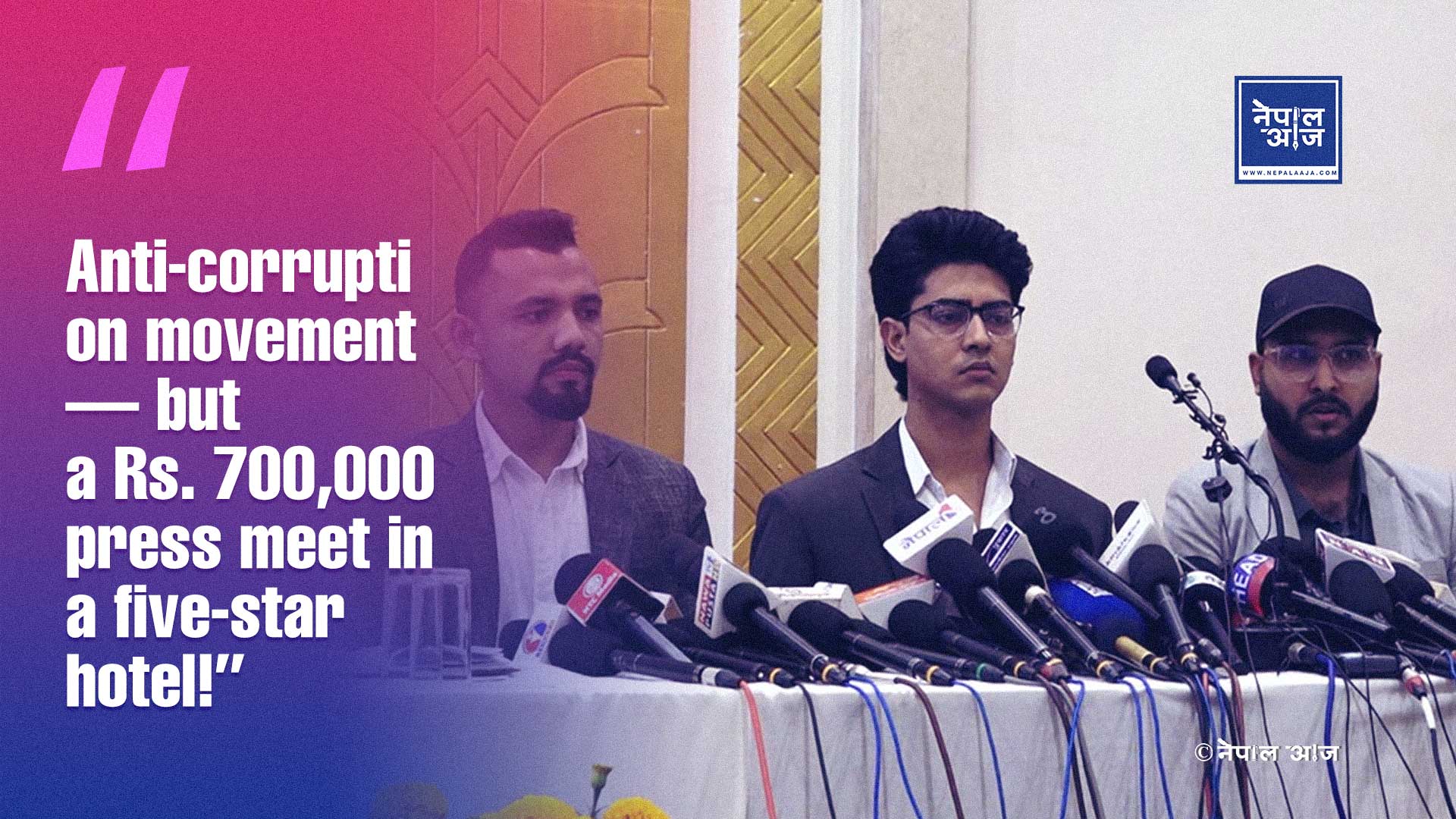Oli-Style Bottom-Line Politics: Is Miraj’s Declaration the Rise of a New “Oliism”?

A grand press conference at New Baneshwor has once again thrust Gen-Z protest leader Miraj Dhungana into the political spotlight. Yet, more than his declarations, it is the extravagant spending and the symbolism behind it that has drawn public scrutiny. Dhungana announced that his newly forming political party would boycott elections until Nepal adopts a direct executive system and guarantees voting rights for Nepalis living abroad. However, critics allege that his tactics mirror those of former Prime Minister KP Sharma Oli, who was often accused of undermining democratic processes for personal and political leverage.
According to Nepal Aaja’s verified access to an official quotation from The Everest Hotel, Kathmandu, an event similar to Dhungana’s press meet, attended by around 250–300 people, would cost approximately Rs. 600,000 to Rs. 700,000(including taxes). The hotel’s hi-tea package, priced at Rs. 2,000 per person, rises to Rs. 2,300 after a 15% tax (13% VAT and 2% luxury tax). That puts the total expense at Rs. 575,000 for 250 attendees and Rs. 690,000 for 300—excluding an additional Rs. 31,000 for audio systems, laptops, and projectors. Participants confirmed that the event featured lavish staging, sound systems, and décor befitting a luxury setting.
Dhungana, however, offered no disclosure regarding the financial sources behind the event. While he called for the creation of a citizens’ commission to combat corruption and promote good governance, the opulence of the venuehas fueled widespread skepticism online. Social media reactions were swift: “How can an anti-corruption movementbegin from a five-star hotel?” one user asked on X (formerly Twitter). Another wrote, “This is turning a people’s movement into an elite showcase.”
Prime Minister Sushila Karki, responding to the larger political debate, stated that Parliament is already reviewingproposals on both direct executive governance and diaspora voting rights. A senior government official, speaking on condition of anonymity, noted, “The energy of the movement must be channeled constructively. Constitutional change cannot occur under the pressure of a single faction.”
This unfolding controversy has reignited questions about the moral integrity and direction of the Gen-Z movement—a campaign that once symbolized resistance against the old order, now seen hosting luxury press meets while calling for “people’s rule.” At this volatile crossroads in Nepal’s political transition, Miraj Dhungana’s move raises a defining question: Is this the dawn of a new political era—or merely the return of an old power culture wearing a modern mask?
Miraj Dhungana Gen-Z




![From Kathmandu to the World: How Excel Students Are Winning Big [Admission Open]](https://www.nepalaaja.com/img/70194/medium/excel-college-info-eng-nep-2342.jpg)


